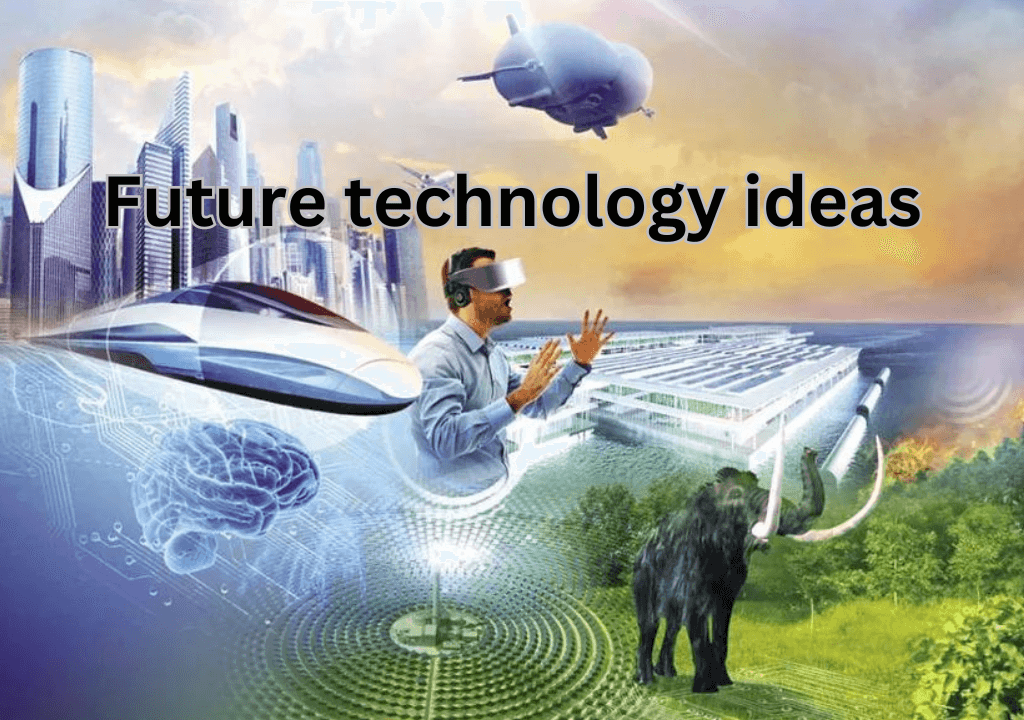The healthcare industry is on the cusp of a transformation driven by a surge of groundbreaking future technology ideas. These tech ideas for the future have the potential to revolutionize how we diagnose, treat, and prevent diseases, ultimately improving patient outcomes and the overall healthcare experience.
In this blog post, we’ll delve into some of the most promising future technology ideas that are poised to reshape the healthcare landscape. We’ll explore how these ideas are being developed, their potential applications, and the impact they could have on patients, medical professionals, and the healthcare system as a whole.
1. Artificial Intelligence (AI) for Diagnostics and Treatment
Artificial intelligence (AI) is rapidly emerging as a powerful tool in healthcare. Technology trends in AI are enabling the development of intelligent systems that can analyze vast amounts of medical data, including patient records, imaging scans, and genetic information. This allows AI to identify patterns and the best tech trends that humans might miss, leading to more accurate diagnoses and personalized treatment plans. Wiki Curiosity is all set to help you with any problems.
For instance, AI-powered algorithms are being developed to analyze medical images and detect diseases such as cancer at an earlier stage, when treatment is most effective. Additionally, AI can assist doctors in identifying potential drug interactions and tailoring medication regimens to individual patients.
What future technology ideas in healthcare excite you the most? Do you have any concerns about the integration of technology into healthcare? Share your thoughts in the comments section below and let’s keep the conversation going!
Read more about Latest Technology Trends: Navigating the Future
2. Predictive Analytics for Personalized Medicine
The healthcare industry is awash in data, and future technology ideas are focusing on harnessing the power of big data to improve patient care. By collecting and analyzing vast datasets, healthcare providers can gain valuable insights into individual patients’ health risks and potential treatment responses.
This data can be used for predictive analytics, allowing doctors to identify patients who are at high risk of developing certain diseases and intervene early with preventive measures. Future technology ideas in big data will also enable the development of personalized medicine approaches, where treatments are tailored to a patient’s unique genetic makeup and medical history.
3. Robotics and Telepresence Surgery
Robotics is already playing a significant role in surgery, and future technology trends are pushing the boundaries even further. Robotic surgical systems allow surgeons to perform minimally invasive procedures with greater precision and control. This can lead to faster recovery times, reduced pain for patients, and improved surgical outcomes.
Future technology ideas are also exploring the potential of telepresence surgery, where surgeons can operate on patients remotely using robotic arms. This could revolutionize healthcare access in remote areas or for patients who are unable to travel for surgery.
Read more about New Tech Gadgets: Discover the Latest Innovations
4. Virtual Reality VR and AR for Training and Treatment
Virtual reality (VR) and augmented reality (AR) are immersive technologies that are finding new applications in healthcare. Future technology ideas in VR are being used to train medical professionals in a safe and realistic environment. VR simulations can allow doctors and nurses to practice complex procedures before treating real patients.
AR, on the other hand, has the potential to improve surgical procedures by superimposing digital information onto a patient’s anatomy in real time. This can provide surgeons with a clear view of vital structures and improve the accuracy of surgical interventions. Future technology ideas in VR and AR are also being explored for therapeutic purposes, such as helping patients manage chronic pain or phobias.
5. 3D Printing for Bioprinting and Personalized Medicine
3D printing technology is making significant strides in healthcare, with future technology ideas focusing on bioprinting. Bioprinting involves using 3D printing techniques to create human tissues and organs. This has the potential to revolutionize organ transplantation by creating replacement organs for patients in need.
Future technology ideas in 3D printing can also be used to create personalized medical devices, such as prosthetics and implants, that are tailored to each patient’s specific needs. This can lead to improved patient outcomes and a better quality of life.
6. IoMT for Remote Patient Monitoring
The Internet of Medical Things (IoMT) refers to the network of medical devices that can collect and transmit data over the Internet. Future technology ideas in IoMT are enabling the development of wearable devices and sensors that can monitor a patient’s health status remotely.
This allows doctors to keep track of patients’ vital signs, such as heart rate, blood pressure, and blood sugar levels, outside of a clinical setting. This can help identify potential health problems early on and allow for timely interventions. Future technology ideas in IoMT can also empower patients to take a more active role in managing their own health.
7. Gene Editing for Disease Prevention and Treatment
CRISPR gene editing is a revolutionary technology that allows scientists to modify genes with high precision. New tech ideas in gene editing hold immense promise for the treatment of genetic diseases. By editing the genes that cause these diseases, doctors may be able to cure them permanently.
Conclusion
The future technology ideas discussed in this blog post represent just a glimpse of the transformative potential of technology in healthcare. As these ideas continue to develop and evolve, we can expect to see significant improvements in patient care, disease prevention, and overall health outcomes. The future of healthcare is bright, fueled by a wave of groundbreaking new technology ideas. By embracing these innovations responsibly and ethically, we can create a healthcare system that is more efficient, effective, and accessible for all.
